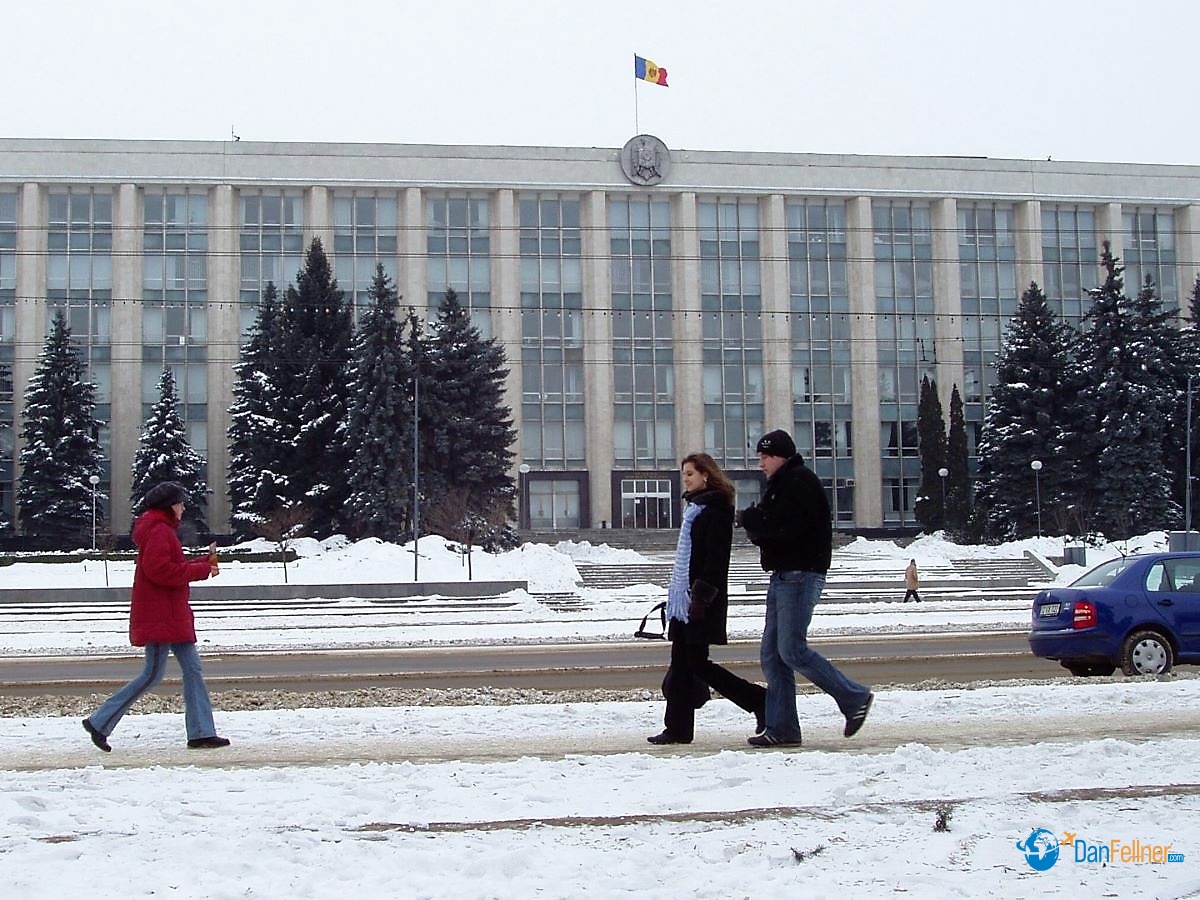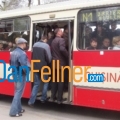Prof teaches journalism in icy clime
The Arizona Republic — January 31, 2006
CHISINAU, Moldova – It’s 7,000 miles and nine time zones between Phoenix and Chisinau, Moldova.
It actually feels like it’s much farther than that.
Through the blowing snow outside the living room window of my second-floor apartment on Nicolae Iorga Street, I can see a statue of Vladimir Lenin in the courtyard of Moldova’s Communist Party headquarters.
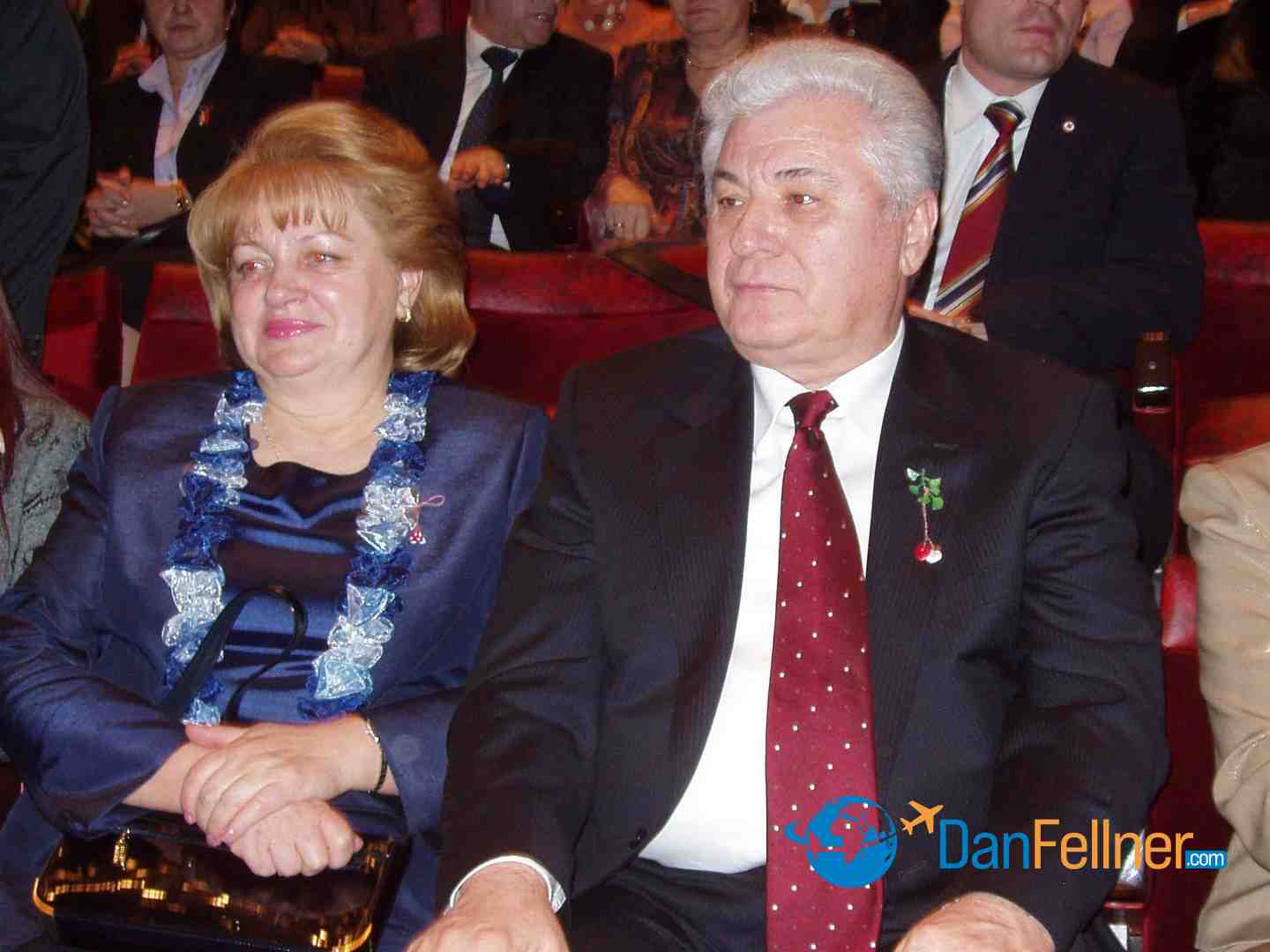
Moldova’s President Vladimir Voronin and his wife Taisia. Voronin was Europe’s first democratically elected Communist party head of state.
It isn’t a monument to a bygone era. Moldova, which endured a half-century of totalitarian rule as part of the Soviet Union until it emerged as the independent Republic of Moldova in 1991, has returned to its communist past. Its people elected a slate of communist leaders in 2001 and re-elected them last year.
But Moldova’s version of communism would make the real Lenin spin in his grave.
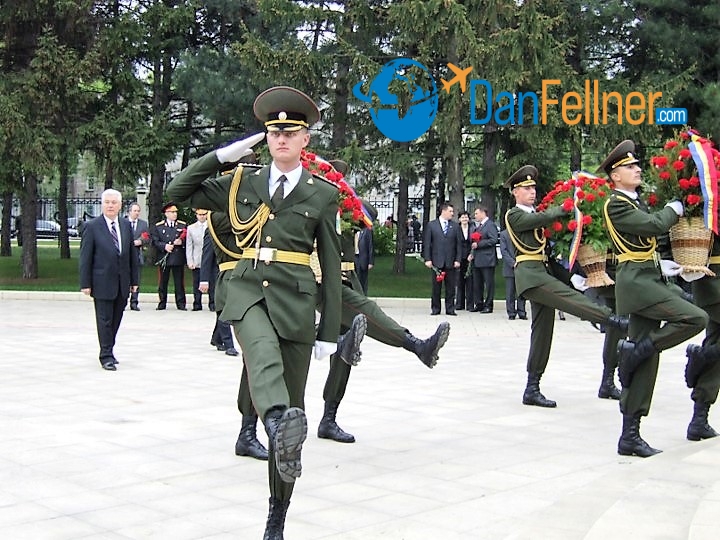
President Voronin (left) at a Moldovan military parade in Chisinau.
Communism here is much less ideological than the past and much more user-friendly. There are no forced labor camps, no KGB, and no bread lines. There are, however, free elections, a free-market economy, and the country is moving toward European integration.
Moldova also enjoys solid relations with the United States. Heather Hodges, the U.S. ambassador to Moldova, calls the relationship “positive and productive.” Moldova is even part of the U.S.-led coalition in Iraq, having sent 65 troops there since 2003.
Landlocked between Ukraine and Romania, Moldova has a population of about 4 million people. Like many countries in this part of the world, it’s been batted back-and-forth between invading powers over the centuries and has struggled to maintain its cultural identity.
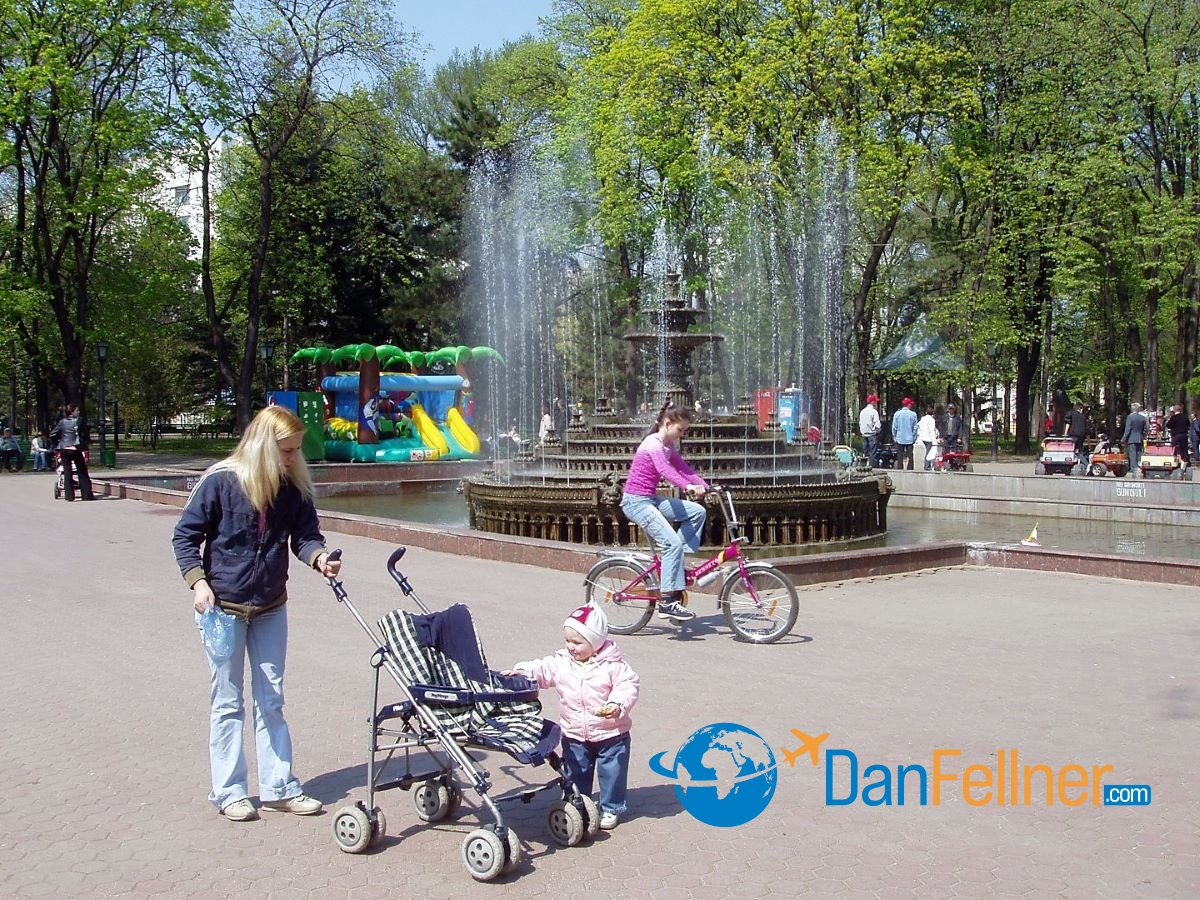
Chisinau’s Central Park. Moldova has a population of about 4 million people.
Moldovan is the country’s official language, but is as similar to Romanian as American English is to British English. Most Moldovans also speak Russian and it’s not uncommon for young people to speak at least a little English, which is widely taught in the schools.
Moldova’s economy, which was highly dependent on the rest of the Soviet Union for energy and raw materials, took a huge hit when the USSR disintegrated 15 years ago and has yet to fully recover. Today, it’s the poorest country in Europe, with an average salary of less than $100 a month. Many people need to hold down two or more jobs just to make ends meet.
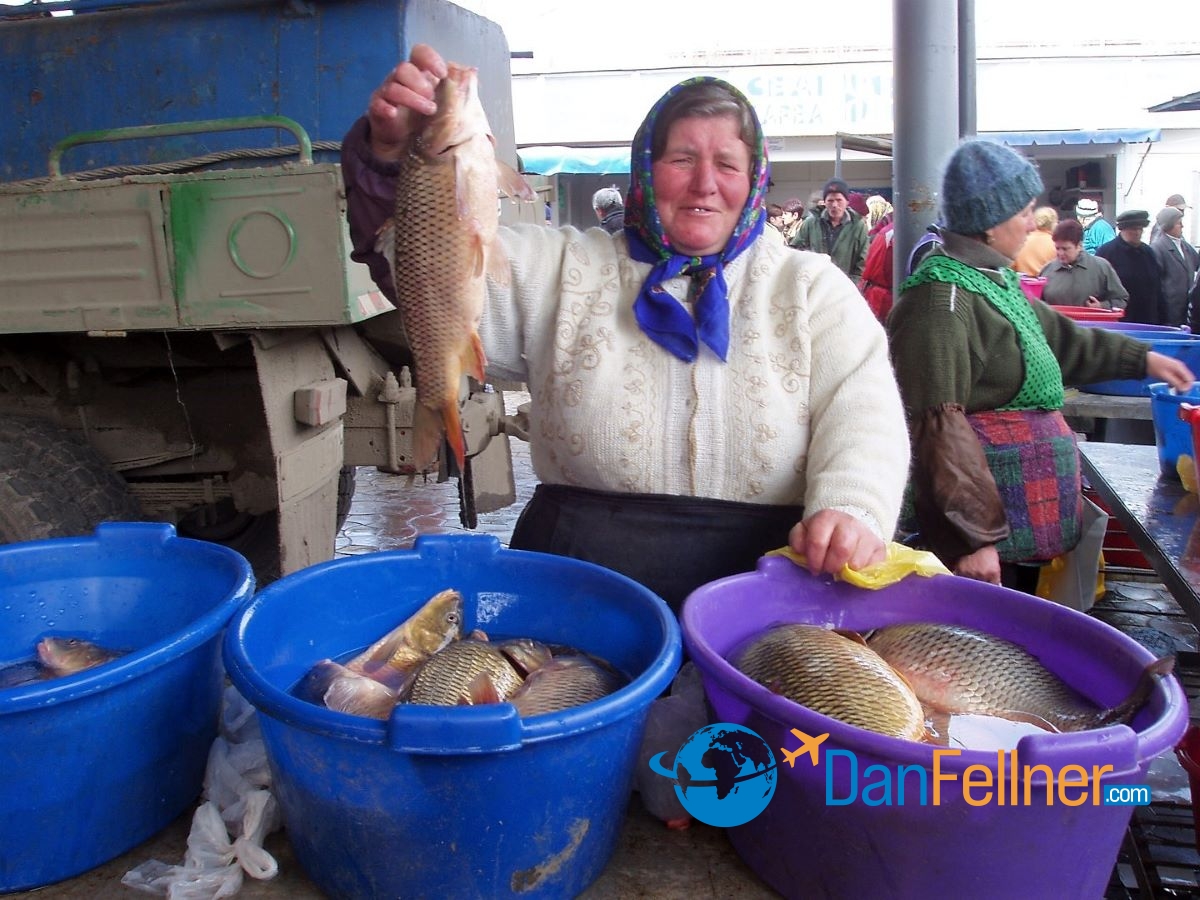
Fish for sale at an outdoor market in Chisinau, Moldova.
Because wages are so low, an estimated one million Moldovans – mostly young people — have left the country in recent years to find work in other European countries. A Moldovan engineer or college professor can increase his or her salary tenfold by working as a construction worker in Portugal or housekeeper in Italy.
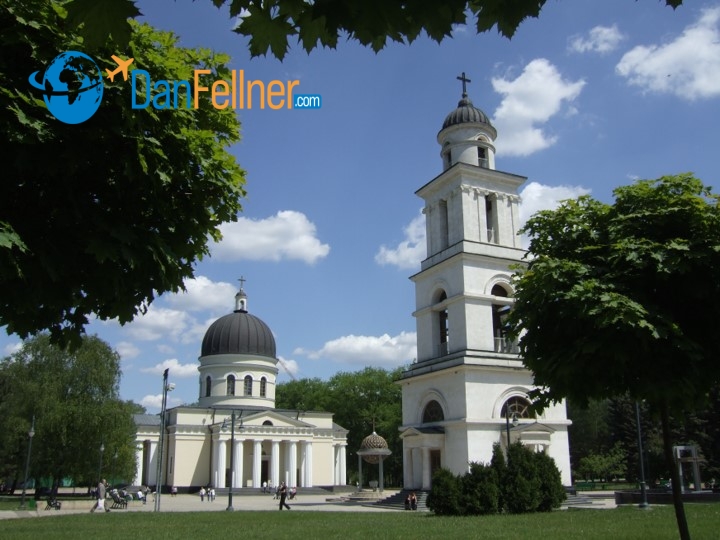
Cathedral Park in Chisinau, Moldova.
This exodus is part of the reason the communists have returned to power. Ghenadie Slobodeniuc, my landlord’s a 28-year-old son who is a lecturer in international relations at Moldova State University, tells me that the communists garner much of their support from older Moldovans who’ve remained in the country, turn out at the polls, and fondly recall the days when bread was cheap – even though you had to stand in line to get it — and everyone was guaranteed a job.
“They are living in the past,” says Slobodeniuc, of the older voting bloc. “They are afraid of change.”
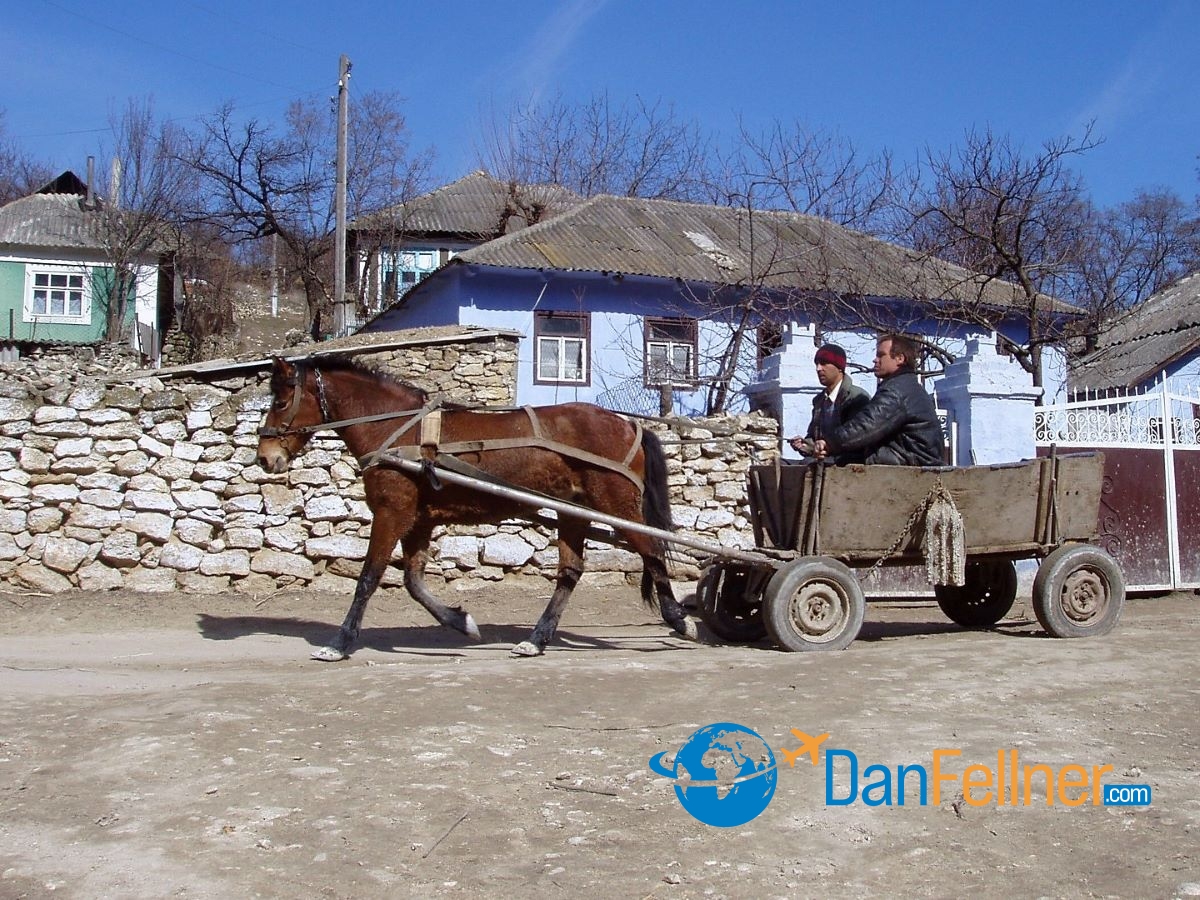
The village of Trebujeni. Moldova is one of Europe’s poorest countries.
He adds that more centrist parties, which held power in the years after independence, failed to keep their promises and were rife with corruption. So the communists seemed like a palatable alternative to a majority of the Moldovan electorate.
But as Ambassador Hodges notes, corruption remains “endemic and affects all aspects of Moldovan life.” And Slobodeniuc and other Moldovans with whom I’ve spoken are skeptical that government — in any shape or form — can significantly improve things.
I am living in Chisinau (pronounced kish-i-now), the capital and largest city, with a population of about 700,000. For such a poor country, I’m amazed at how many Mercedes and BMWs I’ve seen and some of the high-end boutiques here wouldn’t look out-of-place in Scottsdale. Like a lot of other developing countries, there’s a huge gap between the rich and poor.
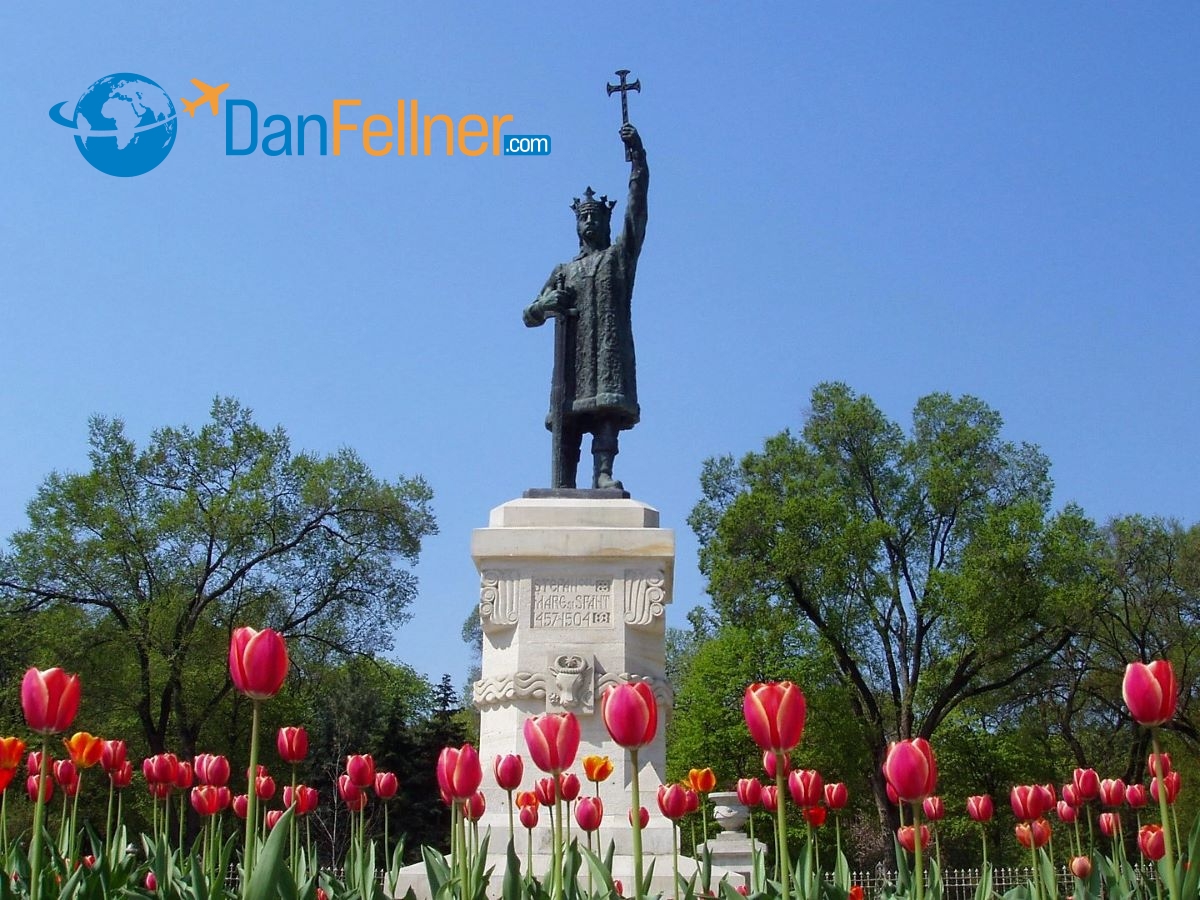
A statue of Stefan cel Mare, Moldova’s national hero, in downtown Chisinau.
During my second week here, a record cold spell hit Eastern Europe and temperatures in Moldova plunged to 10 degrees below zero, the coldest weather in more than a decade. Fortunately, the apartment the U.S. Embassy arranged for me has dependable heating and hot water. It’s something we take for granted back home, but here in Moldova, it’s considered a luxury that a good segment of the population can’t afford, particularly those in rural areas.
I’m just a five-minute walk from the university at which I’m teaching and plenty of stores and nice restaurants are close by. Street crime is lower than in many American cities.
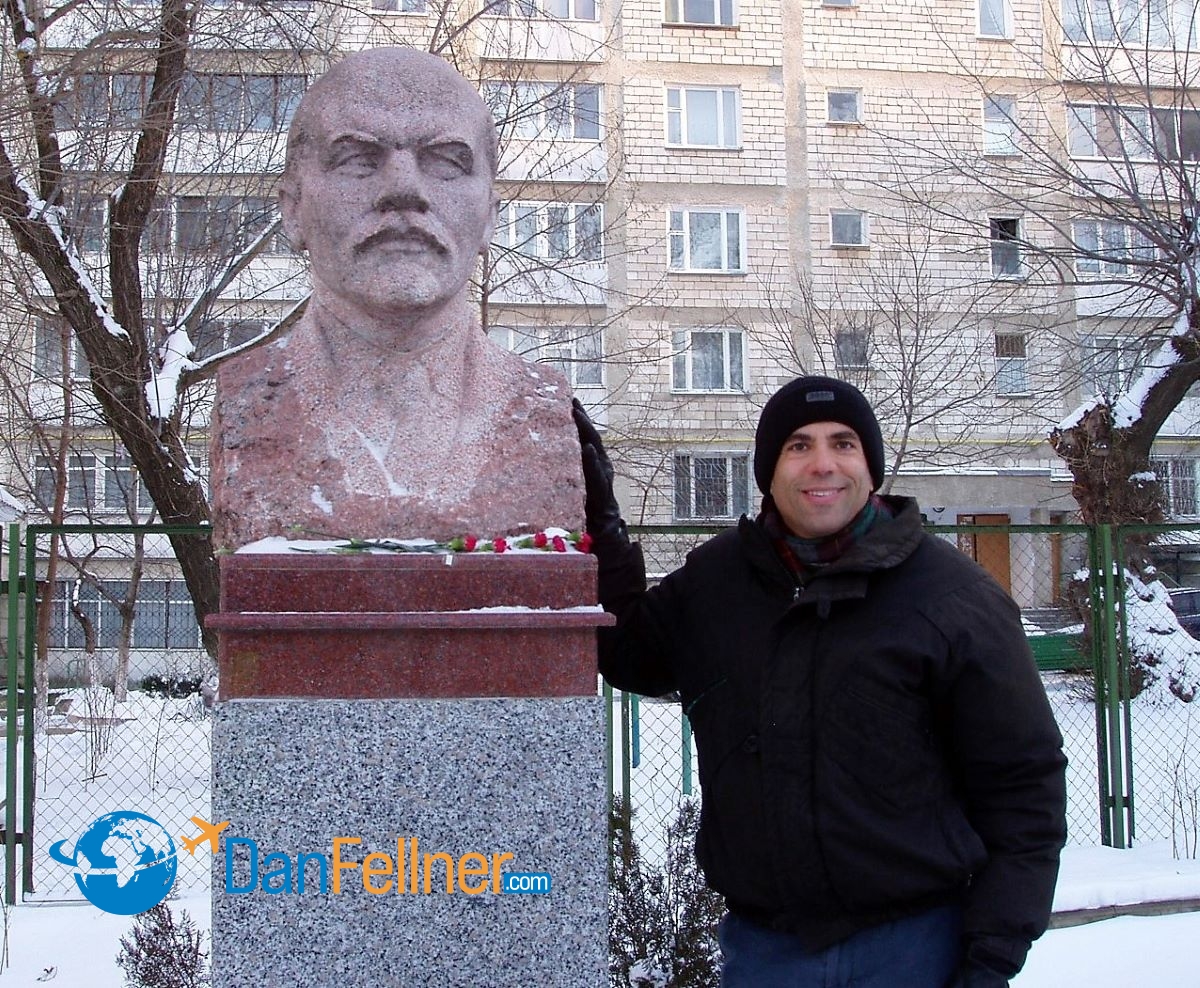
The author next to a statue of Vladimir Lenin in the courtyard of Moldova’s Communist party headquarters in Chisinau.
The biggest danger for me has been navigating the sidewalks. Most of them haven’t been cleared of snow and are treacherously slippery.
And I’ve been warned not to walk down side streets after dark because of the prevalence of open manholes. It seems the covers sometimes get stolen and sold for scrap metal.
While Moldova isn’t known as a tourist destination, there are some interesting things to see here – ancient monasteries and some of the best wineries in Eastern Europe. I look forward to exploring the country.
But for this Arizonan, it’s a bit too cold now to do much sightseeing and venture far from my apartment. For now, at least, I’ll have to be content with my reliable radiator and view of Lenin.
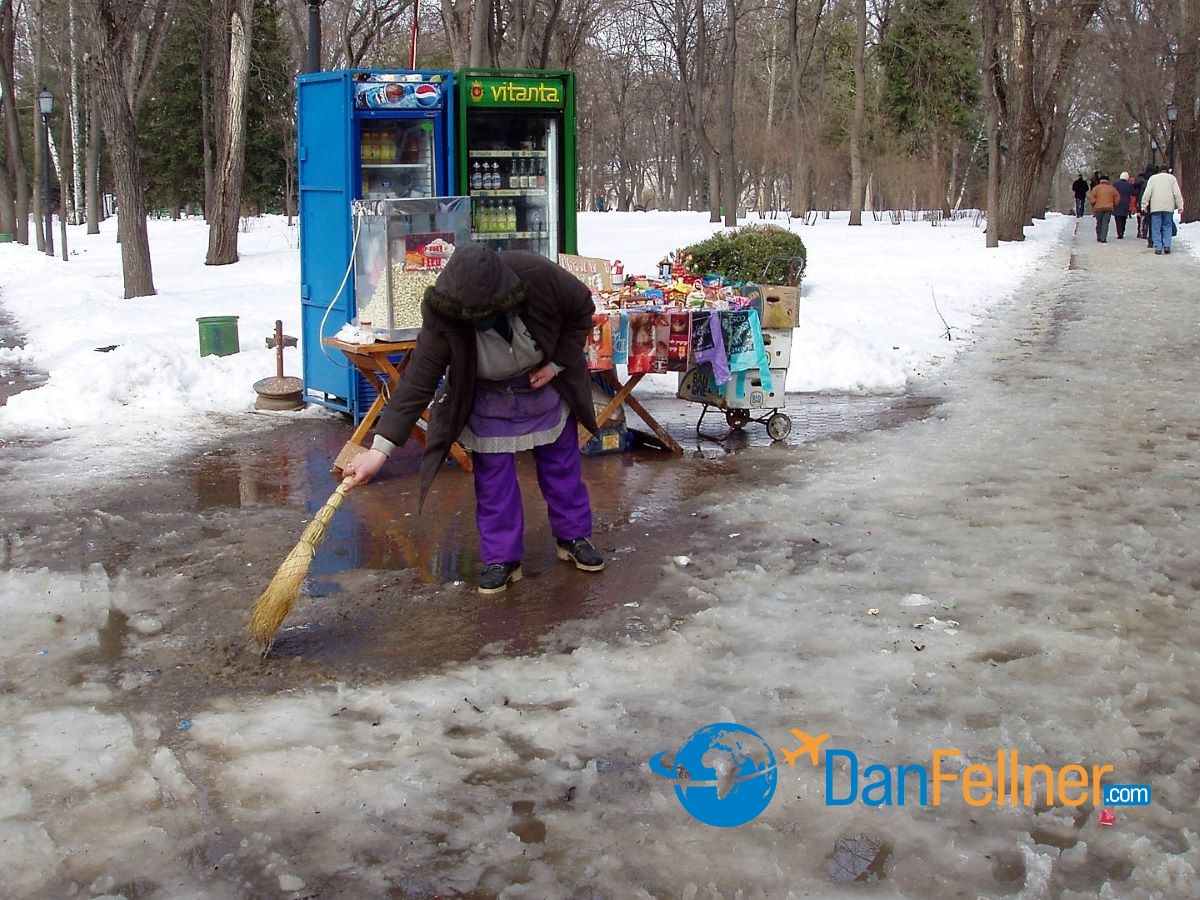
A woman sweeps a slushy sidewalk at a park in downtown Chisinau, Moldova.
© 2009 Dan Fellner

